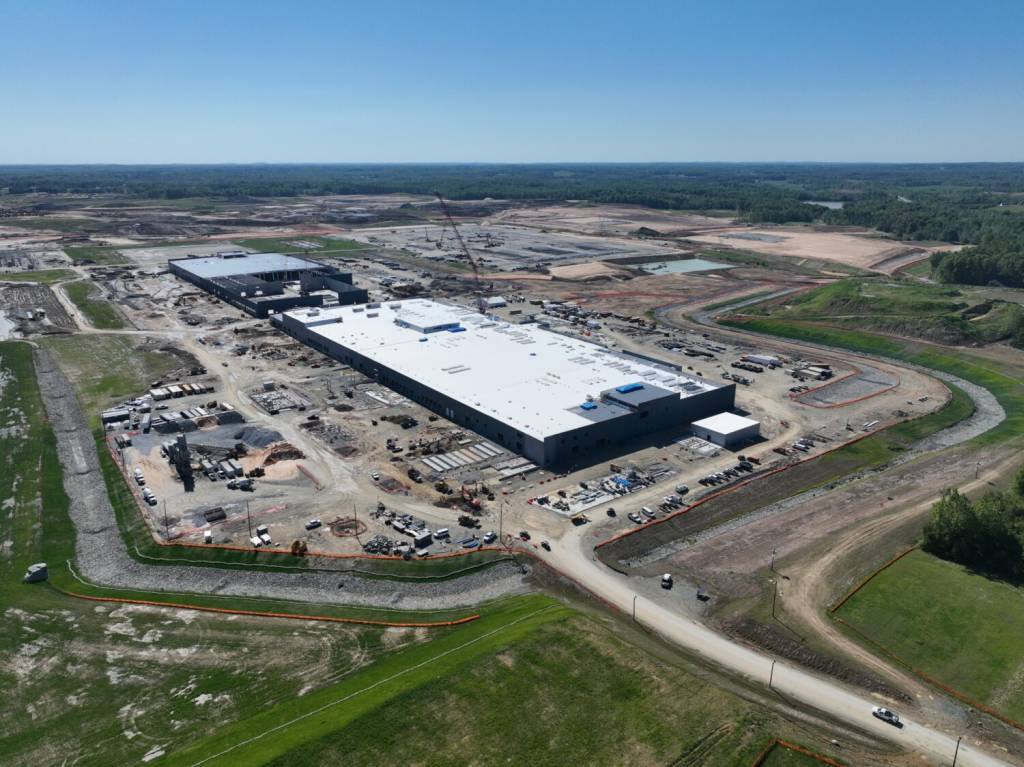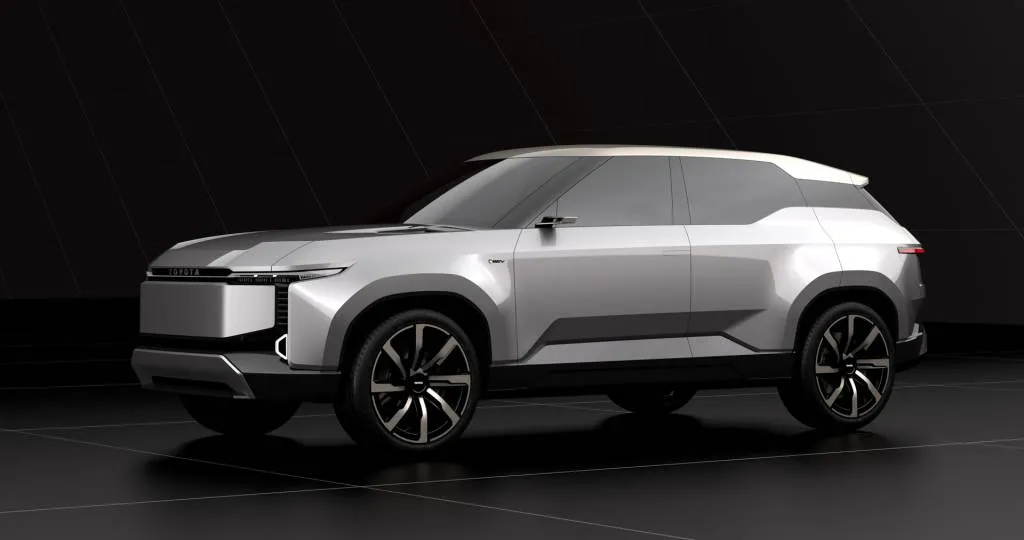Toyota on Tuesday announced an expansion of its planned North Carolina battery plant to accommodate additional volume for EVs and plug-in hybrids.
A new investment of nearly $8 billion will add eight EV and plug-in hybrid battery production lines to the two previously announced, Toyota said in a press release. Toyota previously announced that the plant, dubbed Toyota Battery Manufacturing North Carolina, would also have four production lines for hybrid vehicle battery packs.

Toyota Greensboro-Randolph Megasite (North Carolina) – under construction
Production will gradually increase “in a phased approach,” according to Toyota, with production lines entering operation through 2030 to achieve a targeted annual production capacity of 30 gigawatt-hours. Toyota hadn’t previously quoted a capacity number for this plant.
Toyota announced the plant in December 2021, saying it would pave the way to U.S.-built EVs. The automaker initially confirmed a $1.29 billion investment, but announced a $2.5 billion expansion of the plant last year as part of an accelerated battery plan. The total investment is now approximately $13.9 billion, according to Toyota.

Toyota Land Cruiser Se concept
The increased emphasis on North Carolina battery production fits into Toyota’s plan to localize production—with obvious benefits allowed by Biden policy and to consumers via the federal EV tax credit, which mandates domestic battery pack and vehicles assembly to qualify for the full credit amount. Toyota has also confirmed a three-row electric SUV—could closely resemble the recent Land Cruiser Se concept—due for U.S. assembly in 2025.
Battery packs aren’t the only zero-emission vehicle components Toyota plans to start building in the U.S. Japan’s largest automaker also plans to start making hydrogen fuel-cell modules, partly for commercial vehicles, in Kentucky.





